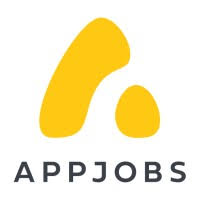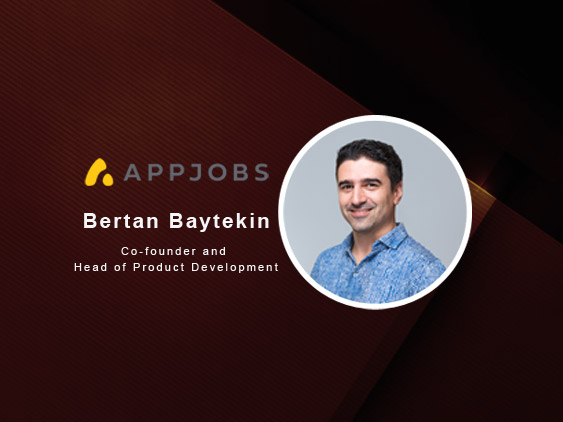TecHRseries Interview with Bertan Baytekin, Co-founder and Head of Product Development at AppJobs Global
Bertan Baytekin, Co-founder and Head of Product Development at Appjobs Global joins us in this interview to share his thoughts on the impact Covid-19 has had on on-demand labor and the gig economy, catch the complete story: ______ Appjobs was originally Alok’s idea. He explained how challenging it was for him to find people to drive with Uber as independent driver partners when he was the general manager of Uber in Sweden. So there were more than enough people who demanded rides but not enough people to drive them i.e. supply those rides. Traditional recruitment options were failing for Alok because they were either ridiculously expensive or totally ineffective. When he pitched the idea of a company that solves the supply operations for future of work to me, I fell in love with it because it was not only about making money but also about helping people adapt to a rapidly changing labor market. I was running my own business that builds digital platforms at the time so it also fit my skill set. My entrepreneurial personality also loved the idea of gathering information or services, matching them with people and presenting them in a simple way so they consume it. Appjobs started as a comprehensive aggregator of gig work opportunities and evolved into a much larger project in 3 years. Our motto remains unchanged: we aim to support people in finding flexible work opportunities that match them so they take charge of their financial lives. We focus on work opportunities that are flexible and personalised for people so they are able to work on their own schedule. Now we are present in over 200 cities and 40 countries and we have over 1 million registered members. Apart from helping workers individually, we are also helping over 1000 gig provider platforms to reach the workers that match their requirements. So we became a two-sided marketplace. Finally, we also collaborate with academic institutions such as University of Oxford and analyse our data for producing insights. With the help of such collaborations, we help international institutions such as World Economic Forum or OECD to understand how future of work is shaping up. We hope that these insights will help decision makers consider the needs of workers. Covid-19 pandemic created a difficult situation for all workers around the world. We expect the supply of work to increase and the demand to decrease. We also think more work will go on-demand. This might create monopolistic opportunities for some platforms which may lead to exploiting workers and a race to the bottom. We think workers should sign up with multiple platforms, try different type of gigs and manage their risks to avoid such problems. To help such workers, Appjobs created a new test application, Appjobs Rewards, that will help workers create their digital worker profile. The app also rewards workers for every dollar they make so they get a little income boost from us, too. Our hope is that all workers may have a digital worker profile that proves their identity, experience and reputation so they can find the opportunities easier. Read More: COVID-19 Is Shaking The Labor Market – How Can We Move Forward? We built Appjobs on three principles: transparency, automation and connectivity. Our motto is to make ourselves redundant so we build a system, not an organisation. Finally, we also try to make incremental improvements in order to front load success and failures. It is a challenge to spread this vision in an organisation because we are not raised or educated this way. Yet, everyone embraces these principles in time when they are presented the merits. So leaders need to be mindful that change happens in time and they need to be patient but also consistent with their demands. I believe work will be entirely on-demand at some point. This means we will all work for ourselves and may even supply work that is demanded by people we never meet. Such an eco-system will require three main skills from workers to survive: self-organisation, responsibility and constant learning. We won’t have people who organise our schedule, take care of our worker identity as a brand, pay our taxes, pension and insurance or sharpen our skills with trainings that are paid for. Governments might increase their influence on the short run and do all of this stuff but this will not be sustainable. So all workers need to be prepared for these facts and consider work as a transactional reality and not a product they sell in bulk for granted to a single entity. And this does not only mean delivery partners or drivers – I mean all industries and all skills. Some workers such as software development specialists have been embracing this reality for over 10 years now but others will also need to accept it as the new normal. Read More: How Human Resources And Risk Mitigation Are Directly Related I think they need to start from explaining their staff that office is not the company. Perhaps they need to start from themselves first. Good quality work in tech happens when people feel motivated and empowered to perform and location should not matter. It is dangerous for people to identify the company as the office because they begin identifying work time as the time they spend at the office. Work time should be the time they produce value and they should decide when, where and how they want to do it. The role of the company should be to provide them a vision, some principles to follow so a common culture is created and the financial support so that workers get access to the best quality tools and equipment. Hiring is less of a challenge if a company has a clear vision and defined set of principles. People want to know that they are spending their time at a company that values it. Such people also understand that it is their responsibility to grow and move forward and they do not expect it from the company. I would recommend tech startups to keep their core team close and outsource everything else if they check the vision and principles. They should reduce their complexity as much as possible to move as fast as possible. Having an HR department Having forced office hours Babysitting people e.g. purchasing equipments and insurance for them Conducting staff evaluations Having employees with roles that have non-measurable KPIs I do not know Keith Ryu in person but I know he is behind a very successful company (Fountain). I’d love to hear his thoughts on these questions and see how much we are aligned. I would recommend two books: The first one explains what sort of people you need in your team and how you make sure they are OK with change. The second one explains fifty models for strategic thinking so you can improve and understand both yourself and others better. Read More: TecHRseries Interview With Sarah McEneaney, Digital Talent Leader At PwC I will definitely be participating at Jobg8 summits. It is hard to mention others because dates have been shifting constantly. We will also be attempting to organise events at Appjobs and we might be collaborating Reshaping Work. Remain calm, redefine your priorities and accept that the world has changed. It is more important than ever to be agile and focused. Try to identify new revenue sources and evaluate low hanging fruits. Keep an open mind and remember that we have seen many crisis but we are still here. People who remain solution-focused will also weather this storm one way or another. AppJobs.com is a start-up for the gig economy with headquarters in Stockholm and Katowice. It is a digital platform that connects job seekers with apps and services like Uber, Airbnb, DoorDash, Upwork, Lime and many more. Bertan is the Co-founder and Head of Product Development at Appjobs.Tell us a little about yourself Bertan, we’d love to know how the idea behind AppJobs first came about and how the product/platform has evolved over the years. What are some of your specific plans /updates for the product given the current world situation due to the Covid-19 pandemic?
In your journey so far, what are some of the biggest leadership/team building lessons you’ve learnt building out your platform at AppJobs and also in general over the years?
We’d love some of your thoughts on how the gig economy is going to change over the next few years: what roles or skills will be more in demand from gig workers?
Given your years/expertise being in the tech segment or as a CEO/Founder for various companies, we’d love to know about some of your most common workplace challenges you’ve faced over the years. How would you advise senior level leaders / HR leaders within the B2B/tech industry to address these same challenges?
What are some of the most common hiring challenges in the tech industry today and what would you top tips be to overcome them? How would you advise tech startups especially to capitalize on gig workers to solve hiring challenges?
If you could change 5 (mundane) things about employee practices in tech companies, what would they be?
Tag (mention/write about) the one person in the industry whose answers to these questions you would love to read!
Your favorite leadership/hiring quote or top team building books you’d suggest every B2B or Tech professional reads in 2020!
Tell us about some of the top industry events that you’ll be participating in virtually (as a speaker or guest!) in 2020!
A few tips for businesses worldwide dealing with the current world (Coronavirus) pandemic


